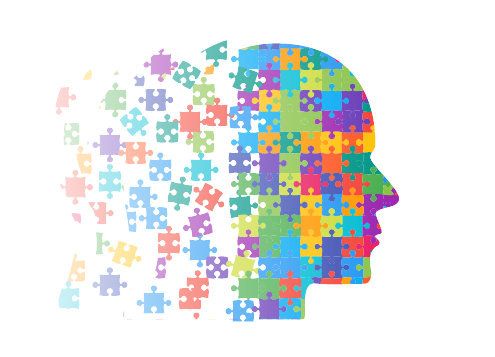Crossing Paths Carer Support Gold Coast

About this service
There is no doubt that caring for someone who is suicidal is traumatic. We want you to know that you are not alone in what you're going through. Whatever your situation, we are here to help. At Crossing Paths Carer Support, we can provide you with practical and personalised support to fit your needs.
This is a free service for carers on the Gold Coast. Every person who engages with us is welcomed, respected and valued.
Crossing Paths is a Wesley Mission Queensland program that has supported people caring for a loved one through a suicidal crisis on the Gold Coast since mid-2020. It was co-designed with people with a lived experience of caring for a loved one and local stakeholders with the support of Roses in the Ocean and Beacon Strategies. Funding was provided by Queensland Health through the Suicide Prevention Taskforce Action Plan.
Read more about what the Crossing Paths program is, why it's needed and the outcomes from an evaluation of the pilot in the attached summary report .
Crossing Paths practical support includes:
- One-on-one carer peer support and peer-led connection group
- Carer education for safety planning, coping strategies and self-care
- Advocacy, service navigation and referral, e.g. financial advice, housing, legal help, respite, relationships and wellbeing support.
By connecting with us we can support you to:
- Feel empowered to build your resilience, confidence, knowledge and skills
- Feel heard without judgement in a compassionate space
- Connect with others who have shared experiences and understand what you’re going through.
Life is all about the people we meet along the way. Paths may only cross once or many times over the years, but it's often for a reason. This is a reminder that you are not alone in your journey. If you are caring for someone who is suicidal, we hope to cross your path, offer our support, and walk alongside you.
Crossing Paths Carer Support is for carers of loved ones who have had contact with a crisis service. To find out more, please contact us:
Phone: 07 5569 1850 or Email: CPSP@wmq.org.au
This is not a crisis service
If you or a loved one are in crisis, please call:
Lifeline on 13 11 14 or the Suicide Call Back Service on 1300 659 467.
Resources
Links open in new window:
- headspaceWeekly support group for family and friends to attend where they gain support, learn strategies to cope and hear from others in a similar situation. The groups provide:
- Reliable information about alcohol and other drugs
- Strategies to reduce alcohol and drug-related harms
- Non-judgemental support to reduce feelings of isolation and helplessness
- Advice about available treatment options
Call Lives Lived Well on 1300 727 957.
Non-religious, open meetings for family members affected by drugs and alcohol. Call anytime 24/7 on 1300 368 186. Also open to anyone and providing opportunities to talk and listen to others in a non-judgemental, safe environment.
- When: 1st & 3rd Monday of the month
- Venue: Girl Guides Hall, 40 Ferry St, Nerang
- Time: 7pm - 9pm
- Enquiries: Chrissie 0484 002 181 or Head Office (02) 4782 9222
The Family Support Program assists family members, couples and partners as well as friends of young people with alcohol and drug-related problems. The aim of the program is two-fold: to help the clients support the troubled young person and to assist clients in self-care. The service offers individual, couple, family and group counselling sessions.
Weekly Family and Friends Support Group; this group provides families and friends with support, encouragement and the understanding and wisdom of others who have similar concerns or are experiencing similar problems.
The Family Support Program is based at the Gold Coast Drug Council, 191 West Burleigh Road, Burleigh Heads, Qld. Call Gold Coast Drug Council on 07 5535 4302.
AODS provide a range of services including assessment, referral, counselling, information, case management, dual diagnosis and group programs. Services offered include counselling, detox, family support, opioid treatment and support groups. Call AODS on 1800 177 833; Southport – 5687 9119; Palm Beach – 5525 5701.
QuIHN is a state-wide, not for profit, and non-government health service which provides a variety of health services to illicit drug users throughout Queensland.
QuIHN offers individual clinical counselling for people whose lives are affected by substance use and related mental health and/or parenting and family issues that may be present. They also offer a range of therapeutic and psychosocial groups for people whose lives are affected by substance use and any related mental health and/or parenting and family issues that may be present.
Call QuIHN on 07 5520 7900.
Offering a range of domestic and family violence services to women, men and children. Their support and prevention programs include:
- Counselling
- Information
- Court support for women
- Court support for men
- Women’s support groups
- Group work
- Information, referral and support for women
- Information and referral for men
- Training and community education
- Assisted referrals to other service
Alternatively, for family relationship advice and/or counselling:
- Family Relationship Advice Line – 1800 050 321 (can also refer you for free legal advice)
- Family Relationship Centre – 1300 132 411
- Relationships Australia – 1300 364 277
- Call Centacare on 1300 236 822
Plus Social is designed to help people whose mental health significantly impacts their daily living. Plus Social provides options for managing your mental health and it gives you the kind of care that improves your quality of life over the long term.
- Clinical care coordination between GPs, psychiatrists and allied health workers
- Connections to a range of local community services and social groups, and
- An after-hours community-based space, The Hub, where clients needing support can come after hours and where many of our social groups will run.
Call Plus Social on 07 3186 4000, from 2570 Gold Coast Hwy, Mermaid Beach.
- ReachOut.com – the help you need, where and when you need it
- Suicide Call Back Service - Free telephone counselling – 24 hours a day, 7 days a week. Receive 6 further telephone counselling sessions with the same counsellor
- Suicide Prevention Pathways - Talk Suicide Support Service 1800 008 255
- Lifeline – Crisis support and suicide prevention
- RUOK? Day – Working to create a world where everyone is connected and is protected from suicide
- Conversations Matter – Practical resources for discussing suicide
- Operation Life Online –Suicide prevention website developed by the Department of Veterans’ Affairs
- Kids Helpline – Australia’s only free, private and confidential, phone counselling service specifically for young people aged between 5 -25 years
- headspace – Online and telephone counselling for 12-25 years– 1800 650 890
- Beyond Blue- provides information and support to help everyone in Australia achieve their best possible mental health, whatever their age and wherever they live.
- Black Dog Institute - a not-for-profit organisation and world leader in the diagnosis, treatment and prevention of mood disorders such as depression and bipolar disorder
- Sane – supports Australians affected by complex mental illnesses.
- Postvention Australia – For the bereaved by suicide and those who support them.
- Salvation Army – Suicide Prevention and Bereavement
- Support After Suicide – for bereavement support groups Australia wide
- S.O.S – (QLD) Survivors of Suicide
- The Compassionate Friends Australia – support to bereaved parents and their families
- Australian Suicide Prevention Foundation – Bereavement
Your wellbeing matters too
Accept what you can’t change
Identify your strengths and weaknesses
Learn skills to help you manage
Build resilience
- Look at the funny side of things when you can
- Believe in your ability to cope through the difficult times
- Focus on good outcomes and experiences
- Accept unpleasantness, learn from it and try to move forward
Practical strategies for reducing stress
- Keep healthy - eat well and exercise regularly
- Try to get a good night’s sleep – limit sweets before bed, don’t drink coffee or tea in the evening and explore ways to wind down before bed, e.g. meditation, listening to music or reading can help if you have difficulty falling asleep. If you wake up with anxiety in the night, try switching your thoughts away from your worries
- Find out what relaxes you and take regular time out to recharge. Try to do something that you enjoy every day and spend time with people who make you feel good about yourself
- Talk with family and friends you trust about how you feel, it can also help to talk with a professional counsellor
- Ask for and accept help!
